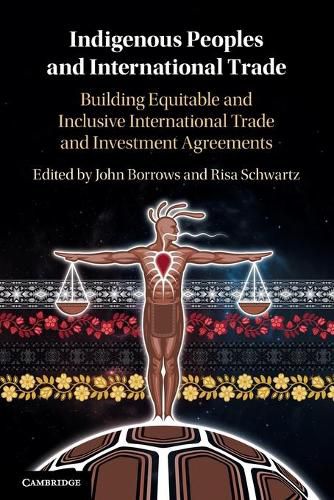Readings Newsletter
Become a Readings Member to make your shopping experience even easier.
Sign in or sign up for free!
You’re not far away from qualifying for FREE standard shipping within Australia
You’ve qualified for FREE standard shipping within Australia
The cart is loading…






The United Nations Declaration on the Rights of Indigenous Peoples is seen primarily as an international human rights instrument. However, the Declaration also encompasses cultural, social and economic rights. Taken in the context of international trade and investment, the UN Declaration is a valuable tool to support economic self-determination of Indigenous peoples. This volume explores the emergence of Indigenous peoples’ participation in international trade and investment, as well as how it is shaping legal instruments in environment and trade, intellectual property and traditional knowledge. One theme that is explored is agency. From amicus interventions at the World Trade Organization to developing a future precedent for a ‘Trade and Indigenous Peoples Chapter’, Indigenous peoples are asserting their right to patriciate in decision-making. The authors, both Indigenous and non-Indigenous experts on trade and investment legal, provide needed ideas and recommendations for governments, academia and policy thinkers to achieve economic reconciliation.
$9.00 standard shipping within Australia
FREE standard shipping within Australia for orders over $100.00
Express & International shipping calculated at checkout
The United Nations Declaration on the Rights of Indigenous Peoples is seen primarily as an international human rights instrument. However, the Declaration also encompasses cultural, social and economic rights. Taken in the context of international trade and investment, the UN Declaration is a valuable tool to support economic self-determination of Indigenous peoples. This volume explores the emergence of Indigenous peoples’ participation in international trade and investment, as well as how it is shaping legal instruments in environment and trade, intellectual property and traditional knowledge. One theme that is explored is agency. From amicus interventions at the World Trade Organization to developing a future precedent for a ‘Trade and Indigenous Peoples Chapter’, Indigenous peoples are asserting their right to patriciate in decision-making. The authors, both Indigenous and non-Indigenous experts on trade and investment legal, provide needed ideas and recommendations for governments, academia and policy thinkers to achieve economic reconciliation.